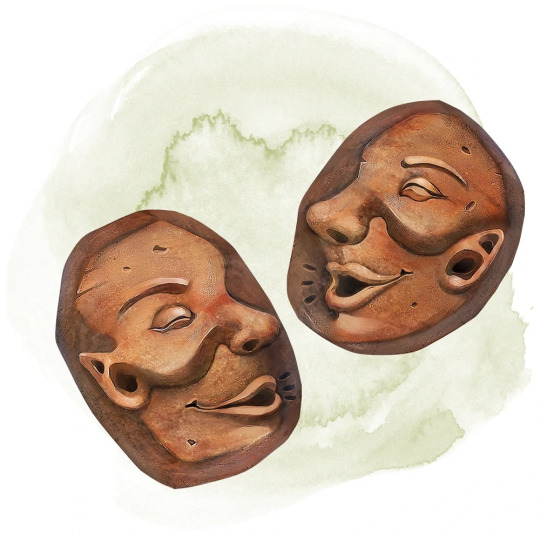#Not that I'm working on a character I might soon use in an upcoming campaign or anything
Text
I love coming up with the stupidest possible ways to name new D&D characters
#Not that I'm working on a character I might soon use in an upcoming campaign or anything#but a past one I really liked was naming my barbarian HELLTOR#Because it's a WAY more badass name than Hector#or so was that character's logic at least#Pun's text Posts
2 notes
·
View notes
Text
Communication - Why is it so important?

Hullo, Gentle Readers! This week's Question from a Denizen comes to us from another shy, Anonymous reader. They say, "I enjoyed the write up on fizzle, it really captures your experience with my favourite trick: talking to each other. Do you have more stories about a time when you and others have different POV on the same session?"
I have to be honest...I can't think of many times where I felt the need to check in or apologize after a session and then found that my players and I were in disagreement. I think this recent fizzle was a situation of me being tired and not feeling great about the game. I reached out to apologize and got reassured that other folks had enjoyed themselves.
I thought instead I would talk a little bit about one of my favorite pieces of advice, why I think it's important, and when I think you should follow it. Everyone who reads this blog for more than a couple of articles will have seen my mantra of "Talk to your players." I say it all the time, because I really feel it resolves 99% of problems in a game. So with that said, why do I think it's so important?
So here's the thing...yes, D&D and other TTRPGs are games, but, at their core, they're relationships. Joining a game is essentially a social contract: I will meet with you, abide by the rules of the game, respect the GM, and we'll tell amazing stories together. This is a relationship, and one that hopefully connects socially in other ways as well. I'm friends with all my players, and, even when I invite new players into a game whom I haven't met before, I often become good friends with them over time. TTRPGs are an intensely social activity. And in any kind of social activity or relationship, communication is absolutely essential.
Now I'm not just talking about the communication around the table, although that's obviously important, too. It's not like the game would work if people wouldn't talk or couldn't understand each other. I'm talking about clear and honest communication where people talk outside the game, discuss how things are going, offer feedback, and the like.
Now, I'm not advocating for having a sit down discussion with your players for every session (although for a starting DM, that could be quite useful). I'm just talking about an occasional casual check-in. Ask your players how they're enjoying the game. Do they like where the story is going? Are there any NPCs they'd like to see more of? Is there anything from their backstory they're wanting to play up more or less? Are there any plot threads they want to make sure don't disappear or that they would like to go away?
A key time to talk to your players, of course, is during a Session Zero, but all the things you discuss at a Session Zero can come up down the road. Maybe someone would like to introduce new safety tools at the table that they were unaware of when the campaign started. Maybe there's some plot element that they hadn't considered for their character that they'd like to add, which requires a tweak to their backstory. Maybe they've realized they've never fought a beholder in D&D, and they want to ask you to add one to your campaign.
Another use of communication is to give feedback to a player on behavior you want to encourage or discourage. You might give someone Inspiration after a session, because after thinking about it, you realized just how great something they did was. Alternately, you might want to ask a player to change behavior in some way, such as not challenging your decisions during game play, not bullying another player, or looking up information they shouldn't have access to during the session.
You may also want to discuss plot with a player. Maybe you have an upcoming plot that they would tie into very naturally, but it would require a minor tweak to their backstory. Maybe you want to make sure they get a cool magic-item soon, and you'd like to know what the player might want. Maybe you want to do a story involving the PC's family, but you don't have a lot of details, so you might need to pick their brains.
If you notice a player seems uncomfortable with something, but they don't comment or invoke a safety tool, you could approach them outside the game and just check in and make sure they're okay. It could be that they're just roleplaying, or that they didn't feel comfortable interrupting the game to voice a concern. If you don't want to call them out specifically, you can send an email to everyone inviting them to reach out to you privately if they have anything they want to talk about.
I hope every DM makes it a habit to talk to their players. Until we chat again, keep those dice a-rolling.
21 notes
·
View notes